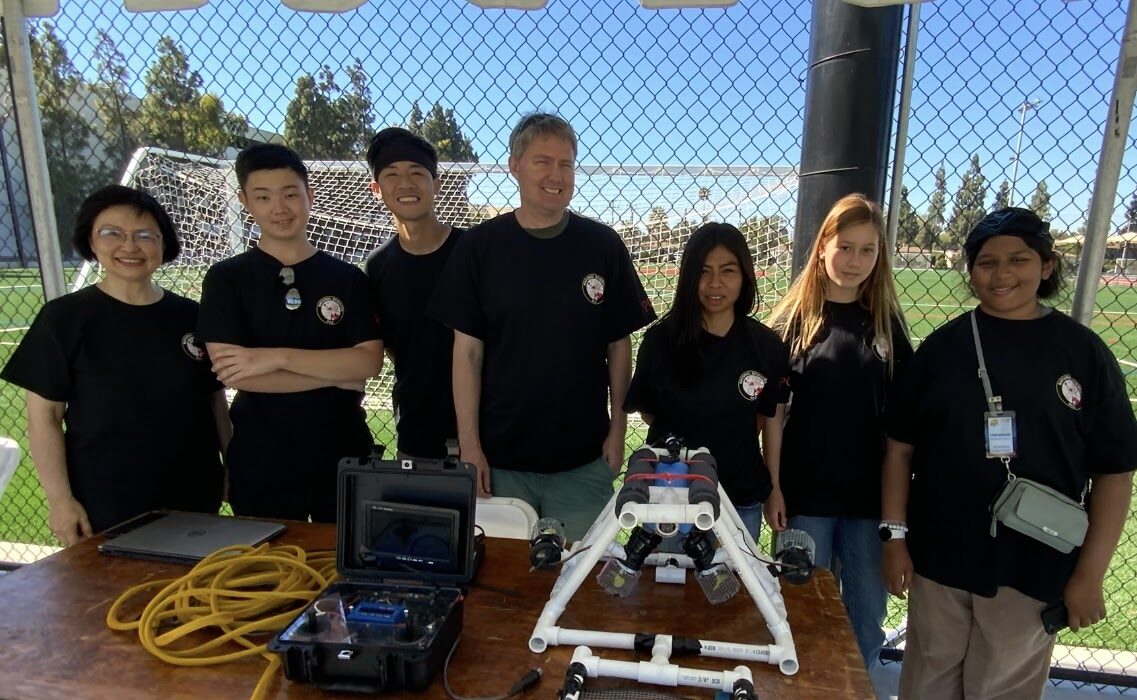
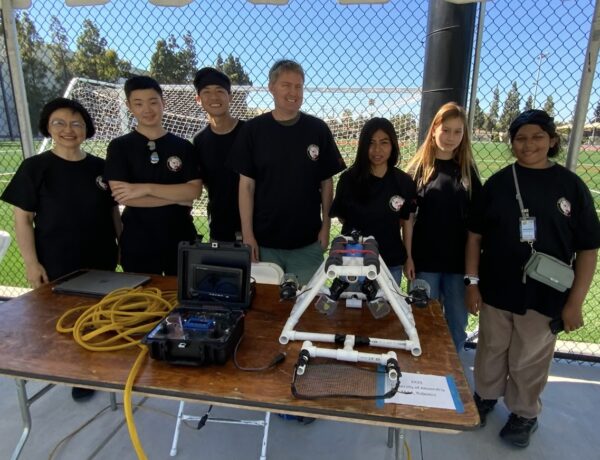
Advancing Nanotech Science!
PCC leads the Micro Nanotechnology Program in California Community College Technical Education thanks to a $9.2 million grant that supports micro and nanotechnology programs in the U.S. Jared Ashcroft and Marco Curelli, two of PCC’s natural sciences professors, tell us more.
What is nanotechnology exactly?
Marco: Basically, it’s science at a really, really small scale. Think of your hair divided about 100,000 times. It’s that small. Nanotechnology is about how we build things at a small scale and how we apply it to real-world problems. The COVID vaccines are a good example. Those vaccines—and even the diagnostics to determine if you have COVID—all require some type of nanotechnology.
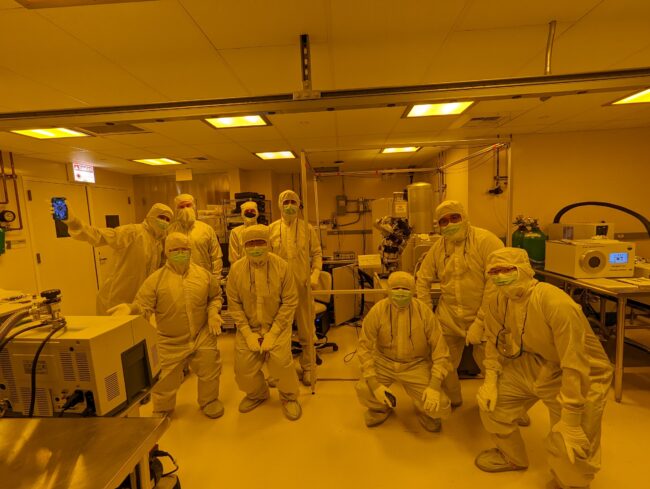
And PCC is the only community college in California with a nanotech program?
Jared: That’s correct. Because of the Micro Nanotechnology Education Center grant, we lead the Micro Nanotech Program at California community colleges. We do professional development, faculty mentoring, undergraduate research, and curriculum validation, and we work directly with industry professionals to determine what our programs should be teaching.
How many students are in this program?
Jared: This was year one of the program and we piloted it with 10 students. Our goal is to increase our classes to 24 by next year and get 12 students’ certificates and jobs once they complete the one-year certificate.
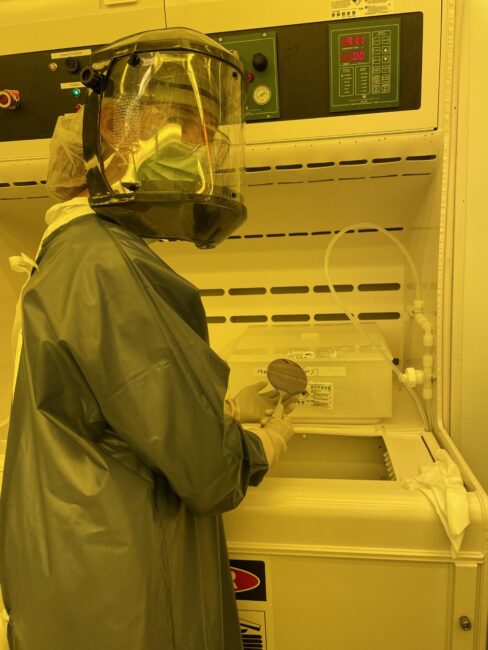
Tell us about PCC’s natural sciences students.
Jared: They’re incredible. In the last year and a half, we’ve had seventeen students receive $10,000 scholarships for undergraduate nanotech research experiences at Caltech and USC. Another thirty students are, right now, doing smaller internships at Caltech, getting paid $600 to shadow grad students and postdocs through something called Caltech Connections. We’ve had students transfer to MIT—most recently Janet Teng, who won the Goldwater Scholarship in 2022. We’ve had students win competitions for innovation—our Lancer Hydrobots team created an underwater ROV, which got them 3rd place. Cumulatively, our program has published about twenty peer-reviewed papers with about fifty student authors on them.
Nanotechnology is a major field of interest at PCC.
Marco: Yes, many of our students are inspired to learn about nanotechnology because it’s helping the scientific community solve problems they care about—environmental issues, for example; solar energy and green energy. There’s a lot of nanotech in these. Once you capture green energy, you can store it in mega batteries. PCC students care about this innovation in technology and what it means for scientific progress.
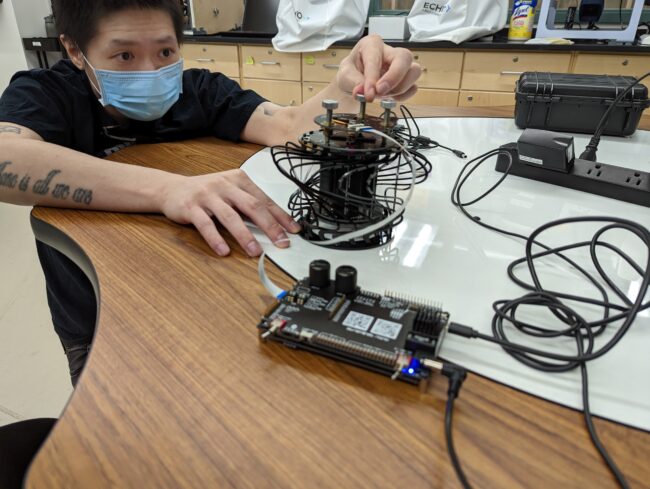
Why is supporting the Natural Sciences at PCC so important?
Jared: Our goal is to provide funding for our Technical Education students. We can seek out funding from things like the Build Back Better plan, which was signed into law back in November, and help our students get scholarships for their respective programs. But what we can’t get funding for is equipment and instruments. That stuff is really hard to finance. So partnering with the PCC Foundation is helping us fundraise for the materials needed to provide robust science education for students. We hope to graduate 30 to 40 students a year and they will need to know and be able to use the equipment and instruments the industry demands.
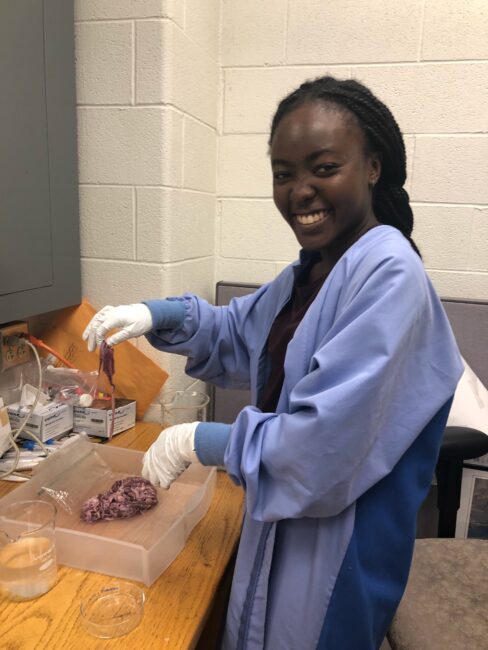
The instruments for the nanotechnology program are quite expensive. More expensive, in fact, than your typical biology or chemistry lab equipment. We require a higher resolution in magnitude. But these instruments also give us a higher degree of precision and specialization. It’s unusual for a student graduating from a community college to list in their skills that they know how to use an electron microscope or an atomic force microscope, or how to create a suspension of nanomaterials.
Marco: In order to get the student outcomes we want and best prepare our students for their careers, it’s important that we create an authentic lab experience for them. Having the proper equipment is necessary to accomplish this.
If you would like to support the advancement of science at PCC, consider making a gift at GIVE.PASADENA.EDU or contact Dolores Ybarra at (626) 585-7349.